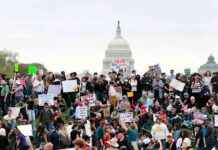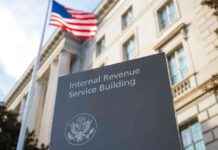President Donald Trump’s recent announcement of widespread tariffs against global trading partners has stirred controversy and criticism from economic experts. Trump justified these tariffs as a response to the imposition of tariffs against the U.S. by other countries, claiming they were a “reciprocal” measure to protect the American economy. However, experts argue that Trump’s characterization of these tariffs as reciprocal is misleading on multiple fronts, calling into question the administration’s handling of global trade economics.
During a speech in the Rose Garden, Trump defended his tariffs by stating that they were calculated based on the combined rate of all tariffs, non-monetary barriers, and perceived cheating by other nations. He further added that he was being “kind” by dividing this number in half and referring to it as a “discount.” This unique calculation approach raised eyebrows among economic experts, many of whom had never encountered such a formula.
Questionable Tariff Calculation Methodology Sparks Debate
Economic analysts have scrutinized the methodology behind the administration’s tariff calculations, focusing on the formula derived from trade deficits and import values. According to experts, the tariffs imposed on various nations were determined by dividing the trade deficit of each country by the value of its imports. This resulting percentage was then halved to arrive at the final tariff rate, as outlined by Trump.
Oren Ziv, an assistant professor of economics at Michigan State University, criticized the administration’s formula, highlighting its departure from conventional trade deficit analysis. Ziv emphasized that trade deficits are influenced by a variety of factors, including financial market dynamics, rather than solely by tariffs and non-tariff barriers. This departure from established economic principles has prompted widespread skepticism among economists and journalists alike.
James Surowiecki, a prominent financial news journalist and author, deconstructed Trump’s tariff rationale in a scathing post, citing the example of Indonesia’s alleged tariff rate as an illustration of the formula’s flaws. Surowiecki’s critique underscored the incongruities in the administration’s tariff calculations, further fueling the debate surrounding the efficacy of Trump’s trade policies.
Experts Challenge Administration’s Trade Deficit Justifications
National Economic Council Director Kevin Hassett defended the administration’s tariff decisions as a response to perceived national emergencies, emphasizing the need to address trade deficits through adjusted tariffs. However, experts like Ziv contend that the administration’s approach to trade deficits lacks empirical support and contradicts established trade policy norms.
Ziv highlighted the historical ineffectiveness of trade wars as a means of resolving economic disparities, cautioning against the potential repercussions of unilateral tariff actions. He stressed that trade policy should be guided by evidence-based strategies that prioritize long-term economic stability, rather than short-sighted retaliatory measures.
In conclusion, the controversy surrounding Trump’s tariff policies underscores the complexities of global trade economics and the importance of informed decision-making in shaping international trade relations. As debates continue to unfold, it remains imperative for policymakers to engage with economic experts and stakeholders to navigate the intricate landscape of international trade effectively.
































